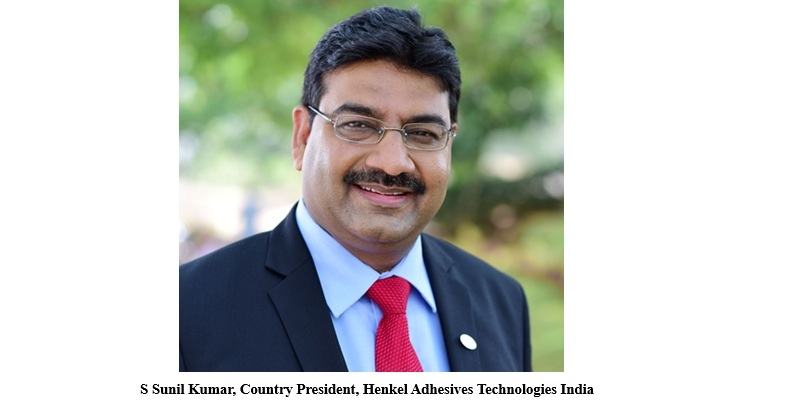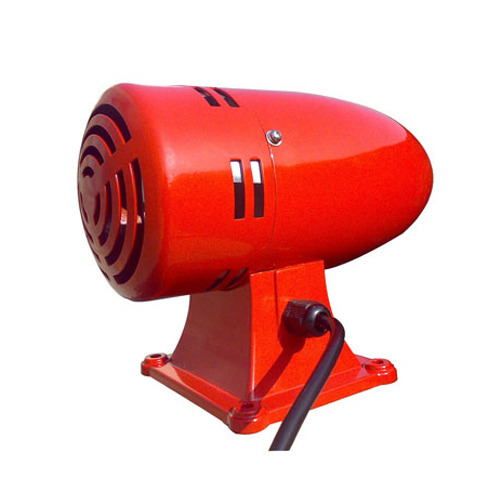Schedule a Call Back
India should prioritise safety to be global manufacturing hub
 Articles
Articles- Feb 16,23

The Economic Survey 2023 tabled by the Finance Minister Nirmala Sitharaman said that India will remain the fastest-growing major economy in the world. As global companies adapt their manufacturing and supply chain strategies to build resilience, India has a unique opportunity to become a global manufacturing hub this decade, the Survey said. This bodes well for India’s manufacturing sector. The manufacturing sector contributes 15-16 percent to the country’s GDP, which is slated to increase up to 25 per cent in the coming years.
‘Make in India’ is a reality today and the Production Linked Incentive (PLI) scheme will put India firmly on the global supply chain map. India’s young workforce, local demand, and the government’s push to encourage manufacturing will unlock opportunities for the country to become a global manufacturing hub.
Keep workers’ safety in focus
Manufacturing is central to the balanced, sustained growth of any economy. It creates jobs and has a multiplier effect on the economy. Considering the focus on the manufacturing sector, it is important to scrutinise the existing occupational health and safety practices. Deficiencies in workers’ health and safety could prove costly in the long run, and any growth in manufacturing must entail a clear practical system to ensure occupational health and safety for workers.
India is seeing on average three deaths and 11 injuries every day due to accidents in registered factories, as per a recent media report. As many as 3,331 deaths were recorded between 2018 and 2020 as per the Ministry of Labour & Employment’s Directorate General Factory Advice Service and Labour Institutes (DGFASLI) in November 2022, the report states. These figures don’t even account for the number of injuries and fatalities among people employed in the unorganized sectors. The alarming figures reiterate the need for inculcating safety as a core value in organisations.
India is aiming to become a global manufacturing powerhouse, with government schemes and reforms tailored to encourage investments and innovation. But fatalities and injuries are all too common, with desperate and vulnerable workers often paying the price. In India, around 80 per cent of the estimated 465 million strong workforce is not protected by the existing health and safety legal framework. Overall, workplace deaths in India are 20 times higher than in the UK: it is estimated that there are 48,000 work-related deaths in India each year, while there were 144 workplace fatalities in absolute numbers in Britain in 2017. In the UK, employers have a legal duty to carry out a suitable assessment of the risks to their workers’ health and safety.
In India, in contrast, many employers do not show enough care for the health and safety of their workers. Daily wage workers in India are poorly trained because their employers know that they are easily replaced. They are not given adequate training by the contractors who, recognising the temporary status of their workers, do not invest in their training or their health and safety.
Recently, an NGO released a report on worker accidents in the automobile sector. They found that most of the injured were untrained helpers. According to the NGO, press shop assistants and operators need a minimum qualification of up to Class VIII. They also need a licence or training in basic press shop housekeeping skills and safety. However, the report found that helpers with little or no training were appointed. They were also found to be overworked and denied overtime. About 51 per cent reported putting in 12-hour shifts. This also leads to accidents.
In addition to the high risk of being killed or seriously injured in site accidents, factory workers in India face the risk of developing serious and often fatal health conditions and diseases due to exposure to various health hazards. These include musculoskeletal disorders (such as serious back injuries), caused by unsafe manual handling of loads; injuries and fatalities due to falling from height and disabling, electrical shocks, burns, and often fatal respiratory diseases, such as silicosis from exposure to dust.
Workplace accidents can have major consequences for a business in terms of the lost time and effort spent dealing with the aftermath of an accident, such as lost management time, reduced productivity, and a negative impact on organisational culture and morale. It also affects the family of the employee who has had an accident. The financial burden can often push the family into poverty.
Good safety net means good business
Good health and safety management is also good business. If an organisation looks after the health, safety, and welfare of its workers, it will be more productive, and this will help the business to be more successful and sustainable.
There is a great need in India for a culture change with regard to workplace health, safety, and wellbeing. Legislation plays an important role in helping to bring about this change, but safety culture needs dedicated leaders who will champion it every day and at all levels. The leadership should regularly remind all workers, through forums such as team meetings, that the health, safety, and welfare of the company’s employees, contractors, suppliers, and customers is critically important to the business.
Frontline workers, supervisors, and managers are the people who understand whether the health and safety management procedures are working or not, so leaders need to create an open environment where workers feel they can voice their concerns, issues, challenges, and ideas around health and safety. Senior management should foster a culture of psychological safety where employees can express freely. This is also an important factor. Employees will know their employers are open to suggestions for improving health and safety, and workers should be given access to senior people to make those suggestions.
Of course, there are Indian business leaders who are willing to stand out and show that safety and health are crucial parts of what they do. Industrial safety is an undying mission and top priority for India as a manufacturing powerhouse. Therefore, India needs more safety leaders to emerge and make a difference if it wants to be recognized as a truly global manufacturing hub.
About the author:
Suresh Tanwar is the Head of Audit and Consultancy – India at British Safety Council. He has a rich experience in safety and health with hands on experience in the initial period of his career with companies like Johnson & Johnson, Tata Chemicals and BJ Services (now Baker Hughes, a GE company). Since last decade and a half in senior leadership role with stints in Castrol India (a BP Group company), Essar Steel, Tata Motors, and Tata Group in strategic roles, Suresh Tanwar has been providing leadership & direction in Safety & Health and formulating safety & health strategies and policies with oversight on governance and compliance.
Related Stories

India’s Manufacturing Mission: What Make in India Got Right and Wrong
A decade after its launch, Make in India shows sectoral progress but structural gaps remain. As global manufacturing turns VUCA, the next phase must focus on value addition, jobs and ecosystems, say..
Read more
How India Can Build Manufacturing Strength in a VUCA World
As global manufacturing resets under VUCA pressures, India stands at a strategic inflection point, balancing resilience, technology, sustainability and leadership to shape future supply chains, says..
Read more
Budget Expectation: Why Materials, Data and Governance Will Shape Manufacturing
India’s manufacturing growth hinges on digitalisation, material self-reliance, and policy clarity to strengthen resilience and global competitiveness, says S Sunil Kumar, Country President, Henkel..
Read moreRelated Products

Grey Polka Dash Board Covers
Elegant Auto Accessories offers a wide range of grey polka dash board covers.

Fire Protection - Industrial Sirens
Amit Safety Enterprises offers a wide range of fire protection industrial sirens.
Read more
Fire Alarm Sysytem
Nayakson Security Systems is offering a range of fire alarm, intrusion alarm and gas alarm systems.














